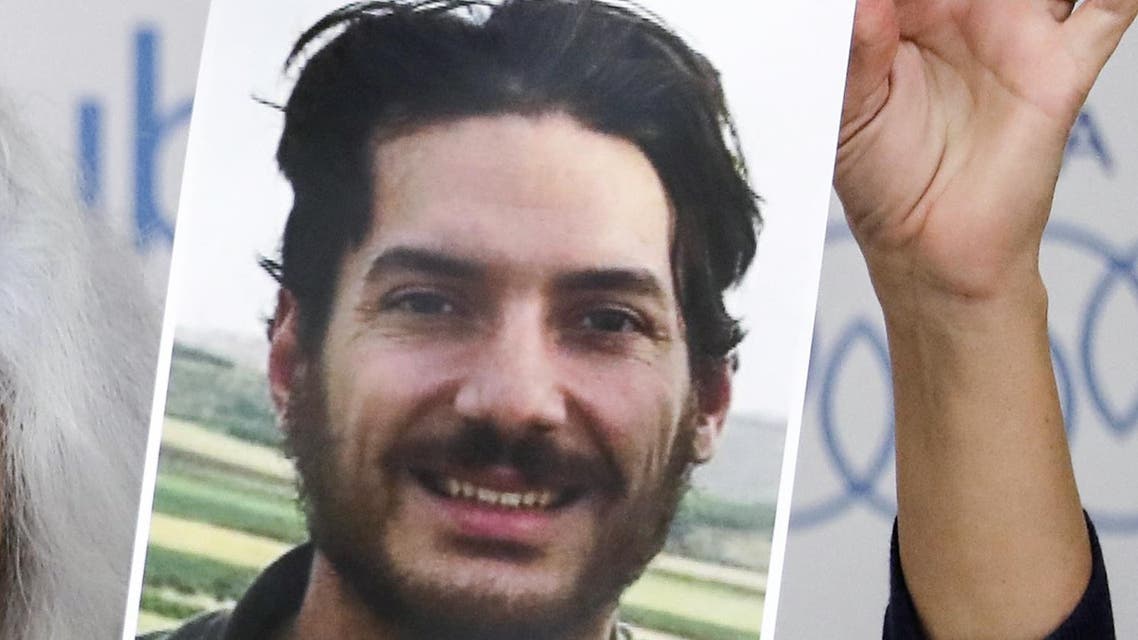Analysts believe the Gulf state’s possible role in securing the release of the journalist can be a challenge, given its staunch refusal to normalise with the Bashar Al Assad regime.
The mother of American journalist, Austin Tice, who has been held hostage in Syria since 2012, hopes that Qatar’s Amir Sheikh Tamim bin Hamad Al Thani discusses her son’s release during Monday’s meeting with President Joe Biden in Washington.
Speaking to Axios on Friday, Debra Tice said that Qatar could help secure her son’s release if it receives the US’ approval, bypassing sanctions imposed on the Bashar Al Assad regime by the White House.
Tice was abducted while reporting in Daraya, a Damascus suburb, on 13 August, 2012, a year after peaceful protests demanding the ouster of Assad turned into a bloody civil war.
The journalist’s mother told the American media outlet that there is a connection between Qatar and Tice, given that he is an alumnus of Georgetown University School of Foreign Service, which has a branch campus in the Gulf state.
“I do believe that the United States needs to take notice that things are quickly changing in the Middle East, and that Syria’s neighbors are very keen to have the conflict resolved. And getting Austin home would remove an obstacle for some of that progress,” said Tice’s mother.
Iran requests Qatar to broker the release of dual national prisoners
Officials from the Qatari government and the White House declined to provide Axios with a comment on the matter, as analysts speculate what issues will be discussed between Sheikh Tamim bin Hamad Al-Thani and US President Joe Biden in their upcoming meeting.
Over the past years, Qatar has successfully managed to broker the release of political detainees and hostages in various parts of the world.
In 2014, Qatar mediated secret negotiations to free US army soldier Bowe Bergdahl from the Taliban in exchange for the release of five Guantanamo Bay detainees. During the same year, it played a key role in securing the release of American journalist Peter Theo Curtis from Jabhat Al-Nusra, an Al-Qaeda affiliate in Syria.
Further afield, in November last year, Qatar helped facilitate the release of American journalist Danny Fenster from Myanmar’s prison after being sentenced to 11 years for incitement.
Qatar also helped release seven Turkish citizens during the same month, after they were held for two years by Libyan forces loyal to renegade General Khalifa Haftar.
Despite its record of successful hostage releases and prisoner exchanges, analysts believe the case of Tice represents an uphill task for Qatar amid its refusal to restore diplomatic relations with the Assad regime.
“I would say that from all Arab countries, Qatar has the worst relationship with the Assad regime and they’re very adamant that they do not want to normalise with the Assad regime at this point and that is kind of a bit of an issue,” Dr. Andreas Krieg, assistant professor at the School of Security Studies at King’s College London, told Doha News on Saturday.
Commenting on Qatar’s previous roles in securing the release of prisoners, Dr. Krieg said that the Gulf state’s success came as it “had some sort of a preliminary relationship or at least a backchannel” to speak to groups, most of which were non-state actors.
“On the other hand, there are always incentives…[Qatar] didn’t just act as a transformational negotiator [by] using their personal relationships or using intermediaries, but they’ve also used a very transactional approach which was always based on bailouts,” added the Middle East and North African Studies researcher.
However, Dr Krieg said that incentives can also be used once the approach is approved by the US as sanctions on the Assad regime under the Caesar Act remain in place.
“In this particular instance, there are quite a lot of obstacles to overcome,” he added.







